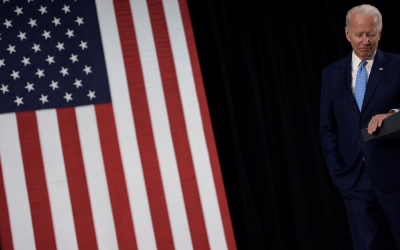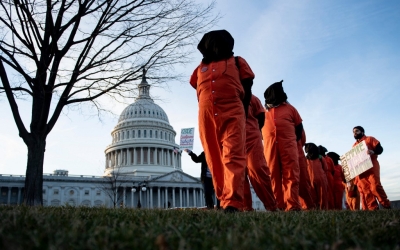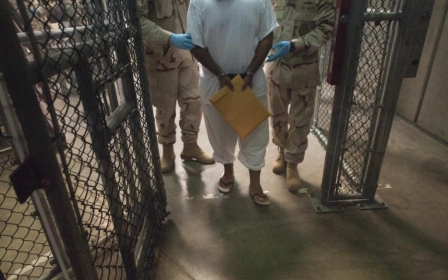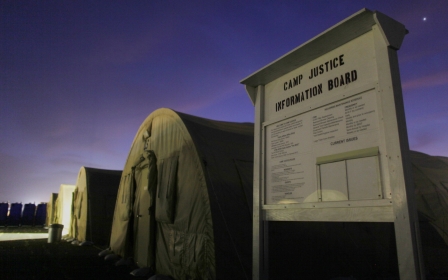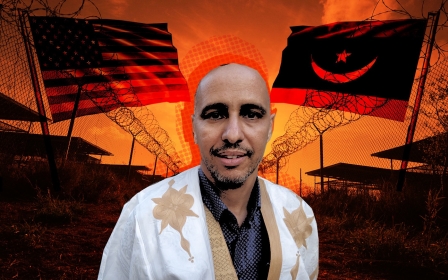Guantanamo prisoners: US court says due process not for them
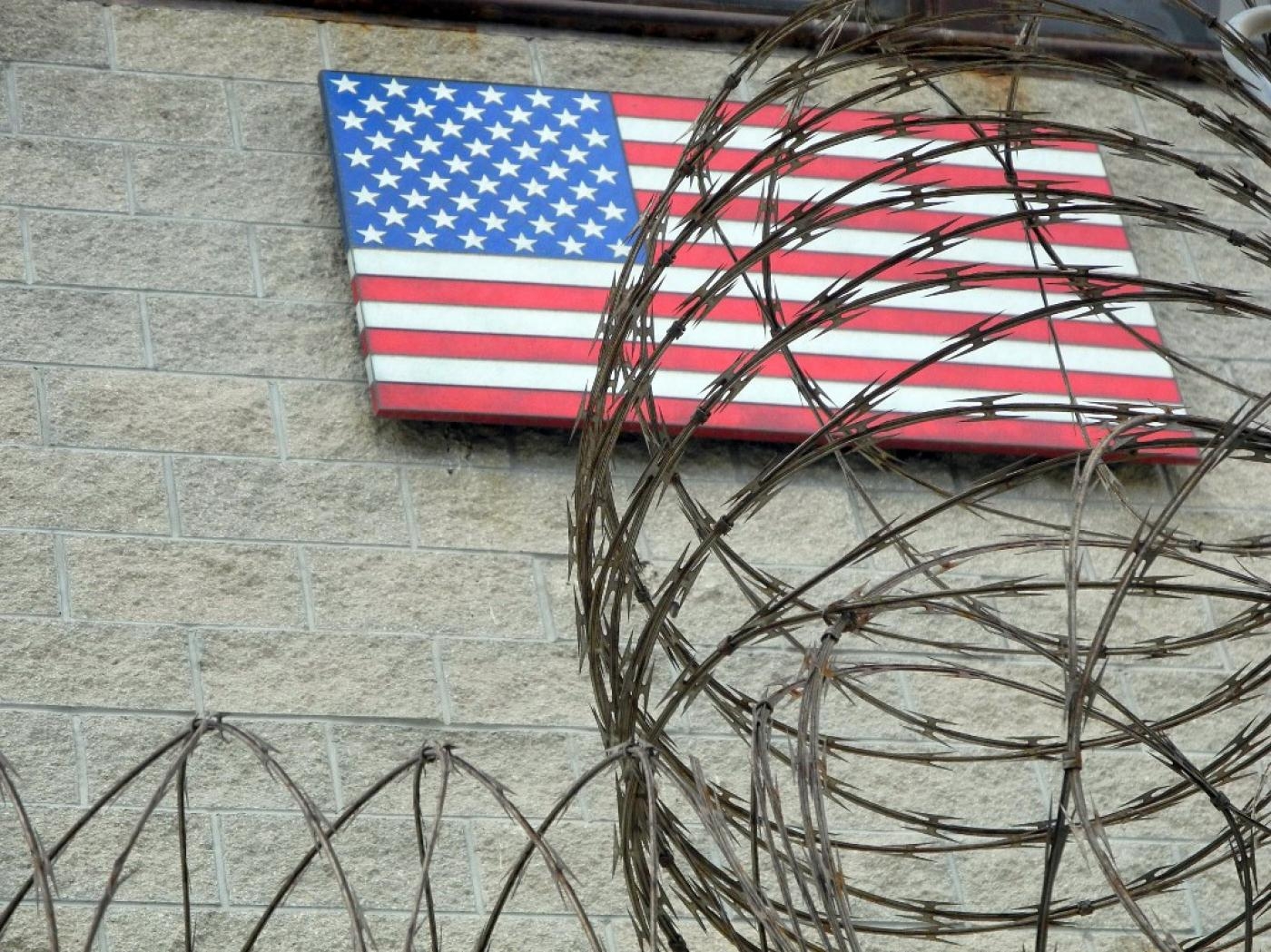
A federal appeals court in Washington DC recently ruled that Guantanamo Bay prisoners are not entitled to due process - a landmark decision that may have an overarching effect on the prison camp's war court trials, and one that defence lawyers may try to challenge.
A three-judge appeals panel for the District of Columbia Circuit ruled unanimously last week to uphold the indefinite detention of Abdulsalam al-Hela, a 52-year-old Yemeni citizen who was held at a CIA black site for more than a year-and-a-half before being transferred to Guantanamo in 2004, where he has been detained without charge or trial ever since.
'Due process is one of the most fundamental constitutional guarantees, and to rule that it simply does not apply to Guantanamo detainees contradicts those most fundamental values'
- David Remes, defence lawyer
Last week's decision rejected Hela's appeal, but also took a step further into what some would call "judicial activism" by ruling on the constitutional requirements - or rather lack thereof - at the war court.
"It's significant because an appeals court - a federal appeals court - held for the first time categorically that the due process clause does not extend to detainees in Guantanamo. They just shut it down," David Remes, one of Hela's defence lawyers in the case, told Middle East Eye.
The decision means judges at Guantanamo's war court are not necessarily obliged to consider the rights of detainees or their cases through the lens of the US Constitution.
New MEE newsletter: Jerusalem Dispatch
Sign up to get the latest insights and analysis on Israel-Palestine, alongside Turkey Unpacked and other MEE newsletters
A question of 'exceptional importance'
Now, Remes and his legal team are expected to ask the full court to consider the case. While the appeal was presided over by a panel of three judges, a request for an "en banc" review would ask the entire DC Circuit - all 11 judges - to hear the case.
En blanc hearings are not usually ordered outside of extraordinary circumstances or unless the proceedings involve a question of "exceptional importance".
A ruling against a court's requirement of due process - a concept much older than the United States, having first been recorded in England almost 800 years ago - may certainly be considered "exceptional".
"Due process is one of the most fundamental constitutional guarantees, and to rule that it simply does not apply to Guantanamo detainees contradicts those most fundamental values that the due process clause exists to protect," Remes said.
During the trial, Hela's defence team argued for his release, partly on the grounds that the evidence being used to continue his indefinite detention relied on false and anonymous hearsay, which alleges that he was associated with known and suspected members of al-Qaeda and several other terror groups - allegations he denies.
"Now, hearsay evidence is not always excludable in any case - whether it's Guantanamo, or any other case - there are always exceptions to the rule against hearsay, so it's not that by itself that we challenged," Remes explained.
"But some of the evidence that the government used was anonymous hearsay... where you have absolutely no way of tracking down where the information came from or the integrity of the information."
While the panel acknowledged that hearsay of such a nature was being used as evidence against Hela, it still stood with the government's right to detain him.
"The court concluded after an ex parte, in camera review that the government's intelligence reports were sufficiently reliable to support Al Hela's detention despite containing anonymous, multi-layered hearsay," Circuit Judge Neomi Rao, who was appointed to the court by President Donald Trump, wrote in her opinion.
Due process doesn't apply at Gitmo?
To be clear, Hela does not have a case pending at the war court. He and 22 others are being held without trial. Of the 40 men still imprisoned at Guantanamo, seven have been charged, two convicted, three are recommended for trial and five are stuck in limbo, approved for release but blocked by Trump-era policies.
Those who are being charged face trials at the prison camp's war court, a haphazard institution created after the 9/11 attacks that is still in the process of establishing ground rules and proper procedures. This ruling, if left unchallenged, would back up the military's assertion that the court does not have to afford detainees a whole host of rights traditionally guaranteed to those on trial.
Specifically, Judge Rao wrote that it was "well beyond" the court's authority "to extend or to create new constitutional limits on the conduct of wartime detention by the political branches".
But critics say that what the judicial panel did instead will categorically lift any limits or requirements of due process on the wartime court, which Circuit Judge Thomas Griffith, another judge on the panel, said was not necessary in order to rule on the case at hand.
Judge Griffith, a Bush appointee, said that while he supported a narrow ruling to continue Hela's detention, he did not believe it was necessary for the court to rule on the overarching question of due process at Guantanamo.
"Like my colleagues, I would reject those challenges," he wrote. "But unlike my colleagues, I would do so without taking on the broader question of whether the Due Process Clause applies at Guantanamo. That is a question with immense sweep that our court has repeatedly reserved for a case in which its answer matters. It does not here."
Remes explained that Judge Griffith's stance was that the question of whether due process applied in Hela's case would not affect the ruling at hand concerning Hela's detention, and therefore was unnecessary to touch on.
"The way that courts are supposed to work is that they're not supposed to decide issues that they don't need to decide. And so here, you had two judges, deciding categorically, that due process doesn't apply in Guantanamo, and then you have Griffith who says that we don't need to decide that issue because even if you assume that it applies, Abdulsalam loses," Remes said.
Habeas corpus: Detainees' constitutional right
While Judge Rao wrote clearly that "the Due Process Clause may not be invoked by aliens without property or presence in the sovereign territory of the United States," Remes pointed out that the Supreme Court has afforded other constitutional rights to Guantanamo detainees.
"The Supreme Court already held the constitution applies in Guantanamo in that detainees may challenge the basis for their detention under a part of the Constitution called habeus corpus," Remes said.
In 2008, the US Supreme Court ruled in a 5-4 decision on Boumediene v Bush that those designated as enemy combatants and detained at Gitmo have the right to challenge the lawfulness of their detention by filing habeas corpus petitions in US federal courts.
Habeas corpus is a part of due process by law and specifically means someone being imprisoned has the right to go to court and force the government to explain why they are being detained.
Since the 2008 ruling, which resulted in scores of habeas corpus writs, the Supreme Court has not heard other Guantanamo cases despite numerous requests.
"The courts have never quite repudiated the Bush administration's philosophy that Guantanamo is a land beyond the law," Remes said.
If necessary, Hela's defence team could request the Supreme Court review last week's decision, but getting the high court to consider an issue is difficult, with only about one to three percent of petitions being granted.
Middle East Eye delivers independent and unrivalled coverage and analysis of the Middle East, North Africa and beyond. To learn more about republishing this content and the associated fees, please fill out this form. More about MEE can be found here.


